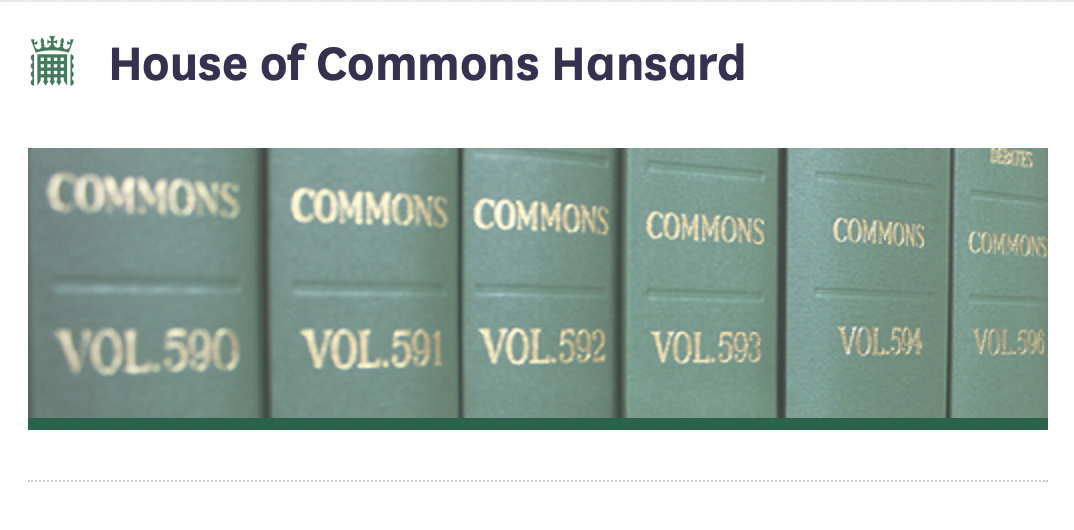Mr. John Whittingdale (Maldon and East Chelmsford) (Con): I, too, express sympathy with the comments of the hon. Member for Thurrock (Andrew Mackinlay) about the need to strengthen the Select Committee system. However, I want to concentrate specifically on the events that occurred in the Select Committee on Culture, Media and Sport, which I chair.
I express my thanks and those of the rest of my Committee for the work of the Standards and Privileges Committee. When we made the referral to that Committee, to ask it to try to discover the source of the leak, we did so without huge optimism that it would be successful; on previous occasions, the Committee has not managed to expose sources with the success that it has had on this occasion. We are grateful to the Committee and we hope that the fact that we have been able to discover the source and take action this afternoon will send a message to other Select Committees about the importance of maintaining the confidentiality of their proceedings.
My right hon. Friend the Member for North-West Hampshire (Sir George Young), who chairs the Standards and Privileges Committee, began by talking about the importance of a relationship of trust between Committee members; that, he said, was why leaks should be regarded as reprehensible. I entirely endorse his words, but I take issue with one comment in his report. Having said that the matter was serious for the reason that I have just mentioned, he went on to say:
“We have to recognise that no-one outside Parliament has complained about the leaking of the draft Heads of Report of the Culture, Media and Sport Committee on the BBC’s commercial operations. It is quite possible that no-one outside Parliament cares.”
My right hon. Friend will not be surprised that I slightly dispute that. The leak occurred online, appearing on mediaguardian.co.uk. Most news distribution is done online in the world that the Culture, Media and Sport Committee looks at; indeed, as observers will know, that is the cause of problems for the traditional media.
The report appeared at about 10 am, I think. I was at a meeting of the British Screen Advisory Council, an umbrella body for media organisations. I was approached by representatives of ITV and the BBC within 35 minutes of the report’s appearance, and I was called by the chief executive of Channel 4 within two hours. I simply say that the report was of great interest to a number of people in the media. It also had a degree of market sensitivity because we were dealing with the independent production sector, which was going to be affected by our recommendations.
I fully agree with my right hon. Friend that the relationship of trust is paramount, but I would not like him to think there were not other good reasons why we felt that the leaking of that particular heads of report was indeed a serious matter.
In its report, the Committee rightly draws attention to failings of members of my Committee’s staff. That is fully accepted by those members of staff, and they will take its recommendations very seriously. As Chairman of the Committee, I should like to put on record the extent to which we depend on those staff and how professional and dedicated I have always found them. It is not just my Committee that enjoys that degree of support; I think that any hon. Member who is involved in Select Committees would agree that generally we are extremely well served by our staff. I was slightly surprised to discover that some of our papers were being circulated by e-mail not only to people involved in our present inquiry but to some of our advisers in other inquiries. I am not sure what our adviser on heritage and planning made of the heads of report on the BBC’s commercial operations. In future, we will be much more restrained in circulating material; I think that that lesson will be well learned in all Select Committees.
The hon. Member for Torbay (Mr. Sanders)—in this context, I would say my hon. Friend—has made a gracious apology to the House. When I first asked all members of the Committee whether they could give any indication of how the leak occurred, he was clear that he had no knowledge of how it came about. I said to him at the time that I fully accepted his assurance, and I fully accept it this afternoon. It is extremely unfortunate that the leak occurred within his office, but he has made it plain that he had no knowledge of it and that it was not under his instruction. That is fully accepted by me and, I think, by all members of the Committee. Although I think I am right in saying that he told the Standards and Privileges Committee that our inquiry into the BBC’s commercial operations did not “float his boat”, he is nevertheless a valuable member of our Committee who participates in other areas of our activities. We are very glad that he does so and look forward to his continuing to do so in future.
